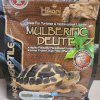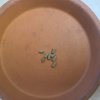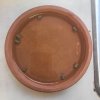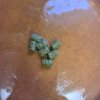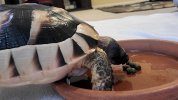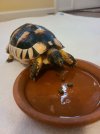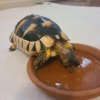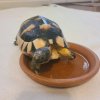- Joined
- Nov 7, 2012
- Messages
- 5,173
- Location (City and/or State)
- South of Southern California, but not Mexico
I tested four and will only report here favorable findings. I had a legitimate lab do the testing, that's what they do - test for chemical compound content and can verify the absence or presence of pesticides. It's all real deal testing, if the product manufacture had products tested and they indicated pesticides, then they would be in danger of a review of their food manufacturing processes and ingredient sources. I'm not a food chemist or attorney for food manufactures. But I am curious and have wanted to see if some of what I sell, intend to sell or even advocate against are pesticide free. Your welcome.
I bought the products in original packaging, sampled them to two ounce portions and turned them into the lab in food approved packaging, double zipper zip lock bags just like what I use for Kapidolo Farms larger portions. The exact manufacturer lot numbers etc were used to track each sample.
The new Hikaru Mulberrific, Mazuri LS tortoise diet, and ZooMed natural forest tortoise diet are tested as pesticide free.
I won't sell the Mazuri products because, well, the're just are NOT as good as the ZooMed - IMO and others' opinions. Soon I will sell the Hikari Mulberrific, I'll repackage bulk into smaller portions, so you can get more product for less $. It is an expensive food though.
I have two 7.7 ounce bags of the Mulberrific food for consumer testing.
Respond here that you will post a review and I'll send one each to two existing Kapidolo Farms customers, totally free of cost. But you got to post your experience with it here in this thread after you openly commit to posting a review.
If you don't follow these simple asks then you don't get the sample. I know, I know, I'm such a harda$$.
I bought the products in original packaging, sampled them to two ounce portions and turned them into the lab in food approved packaging, double zipper zip lock bags just like what I use for Kapidolo Farms larger portions. The exact manufacturer lot numbers etc were used to track each sample.
The new Hikaru Mulberrific, Mazuri LS tortoise diet, and ZooMed natural forest tortoise diet are tested as pesticide free.
I won't sell the Mazuri products because, well, the're just are NOT as good as the ZooMed - IMO and others' opinions. Soon I will sell the Hikari Mulberrific, I'll repackage bulk into smaller portions, so you can get more product for less $. It is an expensive food though.
I have two 7.7 ounce bags of the Mulberrific food for consumer testing.
Respond here that you will post a review and I'll send one each to two existing Kapidolo Farms customers, totally free of cost. But you got to post your experience with it here in this thread after you openly commit to posting a review.
If you don't follow these simple asks then you don't get the sample. I know, I know, I'm such a harda$$.
